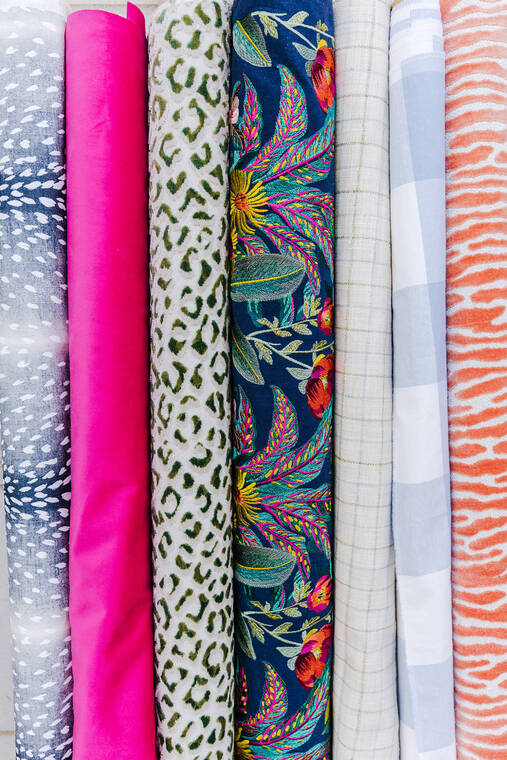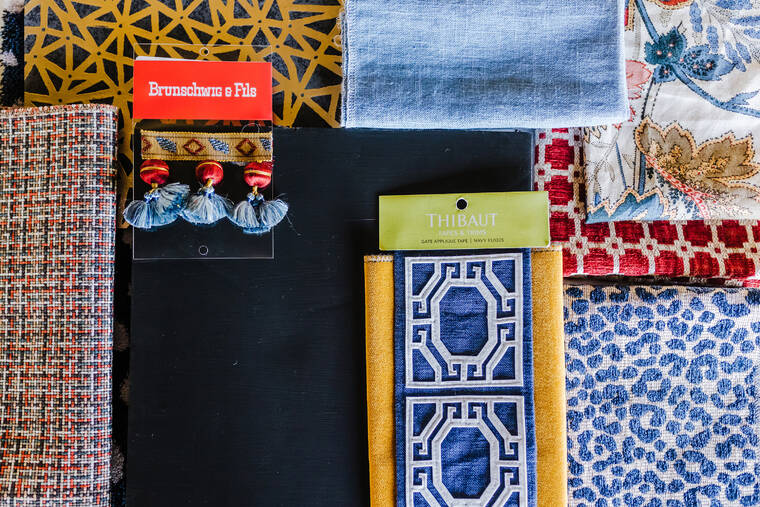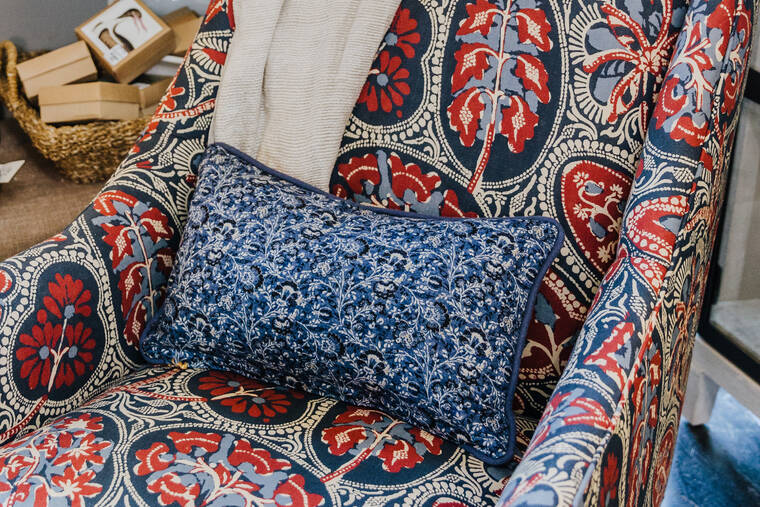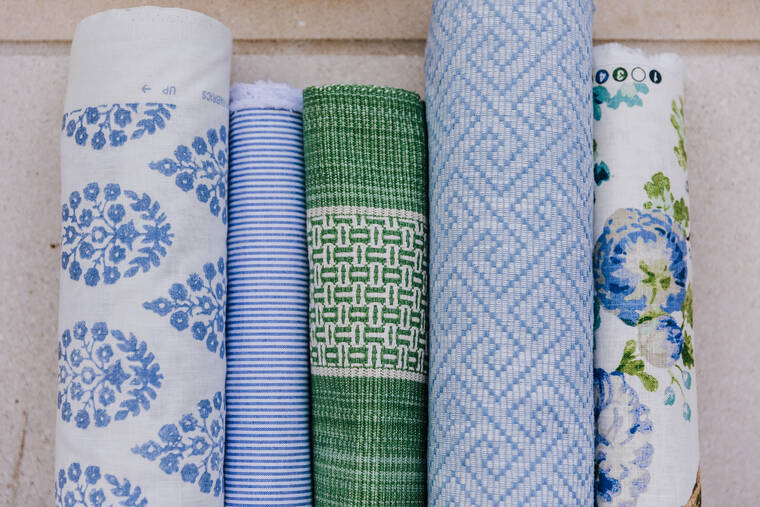We love to mix everything from styles to colors and especially patterns. After all, new traditional design is a mix itself. It is classic and fresh, livable and luxe, formal and fun. The goal is to take “traditional” elements and turn them into “new” design concepts that paint the story of you in your home. Pattern mixing is the starting point to be creative and show personality; it is the perfect excuse to be wild and free and throw the rulebook out the window. Without a rulebook, you can start to create a uniquely wonderful home.
We love to mix everything from styles to colors and especially patterns. After all, new traditional design is a mix itself. It is classic and fresh, livable and luxe, formal and fun. The goal is to take “traditional” elements and turn them into “new” design concepts that paint the story of you in your home. Pattern mixing is the starting point to be creative and show personality; it is the perfect excuse to be wild and free and throw the rulebook out the window. Without a rulebook, you can start to create a uniquely wonderful home.
Pattern mixing is a design term that essentially means curating a variety of textiles with different patterns, colors and textures to create a stunning layered but cohesive look. There are so many places to incorporate fabric and other surface coverings into your home, whether it be an array of pillows for your living areas or bedroom, window treatments, tabletop linens, rugs, wall coverings and of course, your furniture itself.
While there are no hard rules for pattern mixing, there are ways to make the process easier on yourself. We often start the process by finding a “hero” or “sparkle” fabric. A hero fabric is the textile you can’t live without, the one that makes your heart race, the pièce de resistance you know you must have in your space. Once you have your star, you can begin to build upon it for a complete look.
During the brainstorming and building phase, the more textiles, the better. This is the time to pull all the fabrics that catch your eye (and other surface patterns you might incorporate into your space) and experiment by throwing them all together. You never know when opposites will attract, or when an unlikely pairing will turn into something stunning. Keep in mind that variety is the spice of life, and you are looking to create a family of textiles, so include all your favorite patterns from floral to menswear to geometric and toile. Once you have everything gathered, you can start creating your fabric pairings and narrowing down your selection.
It is important to choose fabrics with a wide spectrum of pattern sizes when creating your textile family. A balance between small- and large-scale patterns is essential to a cohesive and coordinated look. A solid balance of patterns, like stripes paired with a large florals and small-scale geometrics, help to create a visually interesting but not overwhelming space. Have a gap you’re not sure how to fill? Try a neutral animal print, clean geometric, or of course, a plaid.
Pattern mixing is something that can seem intimidating, but truly gets easier as you build your own confidence. You never know when your hero textile is going to jump out at you!







